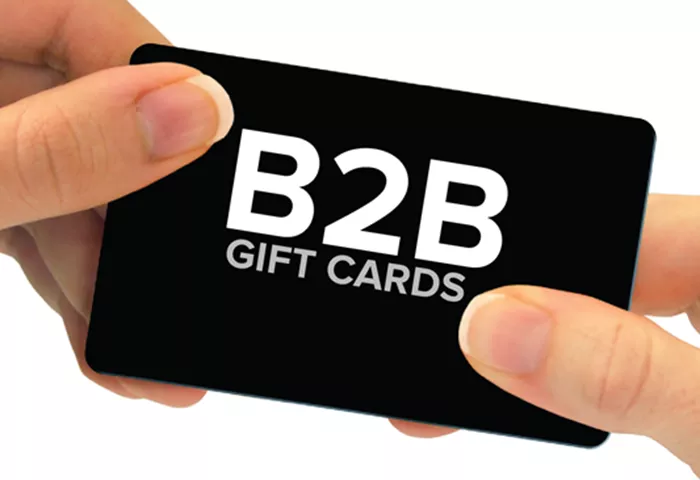The global business-to-business (B2B) gift card market is experiencing strong growth, driven by rising demand for corporate incentives, digital gifting, and evolving employee reward systems. In 2025, the market is valued at US$315.8 billion. Analysts expect it to reach US$629.7 billion by 2031, expanding at a compound annual growth rate (CAGR) of 10.4%.
This growth reflects the growing acceptance of gift cards as effective tools for corporate gifting and employee engagement.
Department stores hold the largest share of the market. Their success is due to strong promotional efforts and high gift card redemption rates. Geographically, North America dominates the global B2B gift card market, with the United States leading the region. Key factors include a well-developed digital infrastructure, a strong culture of using incentives, and significant corporate spending on employee rewards.
The market is divided by card type, including universally accepted open-loop cards and various closed-loop cards such as those for restaurants and retailers. Closed-loop cards lead the market, as they are often tied to specific brands and offer extra value in promotional campaigns. Major players in food delivery and retail continue to drive sales through bundled deals and strategic partnerships.
Gift cards are sold both online and offline. While offline channels still lead, online sales are growing quickly and are projected to rise at a CAGR of 14.2%. As businesses move toward digital solutions and employees prefer fast, flexible rewards, online gift cards are expected to become the preferred choice in B2B gifting.
Both large companies and small- to medium-sized enterprises (SMEs) use gift cards, but large firms currently make up the bigger share. Their structured human resource policies and bulk purchase needs give them an edge. However, SMEs are quickly adopting affordable digital gift card solutions that can scale with growth.
Among merchant types, department stores lead, followed by discount stores and supermarkets. These retailers use gift cards to attract new customers and encourage repeat business. Promotions and loyalty programs tied to gift cards are helping to build stronger connections with both corporate buyers and end-users.
The U.S. holds a 26% share of the global B2B gift card market. A strong tradition of non-cash incentives, along with advanced payment systems and digital platforms, supports ongoing growth. Customization and digital delivery are helping e-gifting gain traction in the corporate sector.
In the UK, demand is rising for customized gift cards. Businesses want tailored gifting solutions for branding and special occasions. Retailers such as Amazon are meeting this demand with personalized options.
In India, millennials are driving a shift from traditional gifts to gift cards, valuing their convenience and practicality. The Indian market is expected to grow at a remarkable CAGR of 19.4% through 2031.
The main factor behind the market’s expansion is the growing use of gift cards in corporate incentive and reward programs. Businesses use them to recognize employees, motivate partners, and retain clients. Gift cards are easy to distribute and manage, making them ideal for large-scale use.
Digital gift cards are also gaining popularity. They offer instant delivery, personalization, and easy redemption—features that align well with mobile payments and remote work environments.
Finally, the rise of corporate gifting as a strategic tool is boosting demand. Companies see gift cards as a modern, data-driven way to build loyalty and deepen relationships. Their flexibility and trackability give them an edge over traditional gifts.


